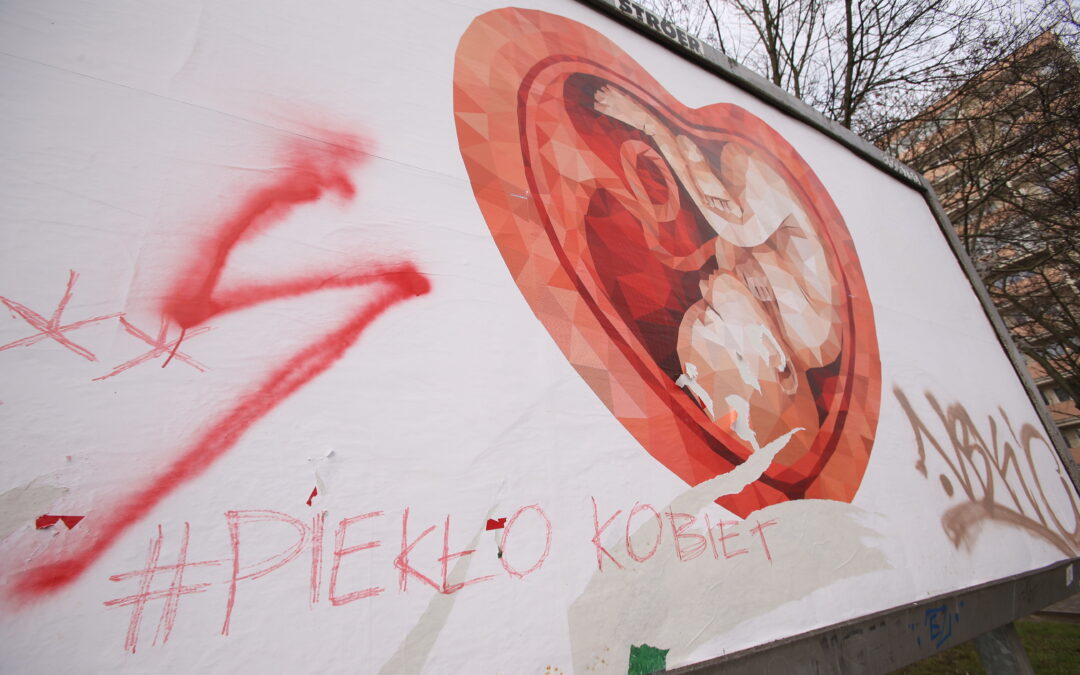Note: it has subsequently emerged that the victim who was reportedly refused an abortion was 24 years old, not 14. Some other aspects of the case have also been called into question. For more, see our latest report here.
A 14-year-old disabled girl who became pregnant as a result of rape was refused an abortion by hospitals in her province, forcing her to travel across the country to the capital, Warsaw, to obtain a termination.
While doctors in Poland are allowed to refuse to perform an abortion under a so-called “conscience clause”, hospitals are required to inform patients where they can obtain a legal termination. In this case it appears that did not happen.
A health ministry spokesman has confirmed that local hospitals failed to comply with the rules. The commissioner for patients’ rights has ordered an investigation. Opposition politicians, however, say that the incident is an example of the consequences of Poland’s strict abortion law, which is supported by the government.
The case was first reported on Friday by Federa, an NGO that supports women’s sexual and reproductive rights. It revealed that the 14-year-old, who has intellectual disabilities, was raped by her uncle.
The crime only came to light when she became pregnant, after which it was reported to prosecutors. While Poland introduced a near-total ban on abortion in 2021, rape and incest are still one of the two circumstances in which abortion is allowed (the other being a threat to the mother’s health or life).
However, when the girl’s aunt tried to help obtain an abortion in Podlasie, the northeastern province where they live, local hospitals refused to provide it, citing the conscience clause.
Moreover, they did not provide information about doctors who could terminate the pregnancy. That led the aunt to contact Federa, which arranged for the girl to obtain an abortion in Warsaw.
Health ministry spokesman Wojciech Andrusiewicz yesterday confirmed that the hospitals “acted against statutory provisions” in this case. “Such an abortion [should] either be carried out or [they should] indicate a place where such an abortion can be carried out,” he told broadcaster TVN.
Paweł Grzesiewski, spokesman for the commissioner for patients’ rights, also told TVN that, while individual doctors can invoke the conscience clause, whole hospitals cannot. His office has ordered an inspection to take place.
Opposition politicians, however, want an even more far-reaching response, including changes to the abortion law and even the abolition of the conscience clause.
“The conscience clause is a barbaric and inhumane law repeatedly exploited by doctors. It should be abolished,” said Katarzyna Kotula, an MP from The Left (Lewica), Poland’s second-largest opposition group, quoted by the Polish Press Agency (PAP).
“Young girls are suffering because of your stupid laws,” another MP from The Left, Paweł Krutul, who comes from Podlasie, told members of the ruling national-conservative coalition. “See what fate you have prepared for Polish women. It’s a disgrace.”
The Left has written to health minister Adam Niedzielski demanding that he explain “how is it possible that in the 21st century a girl harmed by such a disgusting crime could not exercise her rights in her province of residence”.
Yesterday, Donald Tusk – leader of the largest opposition party, the centrist Civic Platform (PO) – also commented on the case. He said it was another example of the environment created by the ruling coalition.
Doctors are now often reluctant to perform abortions due to the fear of legal consequences, he said, leaving women’s pregnancies to be “led by prosecutors or ruling party politicians”.
He pointed to another infamous case from 2021 in which a pregnant woman died of septic shock after doctors waited for her foetus, which had been diagnosed with severe birth defects, to first die.
Main image credit: Cezary Aszkielowicz / Agencja Wyborcza.pl

Daniel Tilles is editor-in-chief of Notes from Poland. He has written on Polish affairs for a wide range of publications, including Foreign Policy, POLITICO Europe, EUobserver and Dziennik Gazeta Prawna.




















